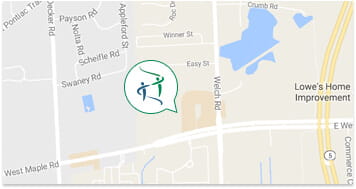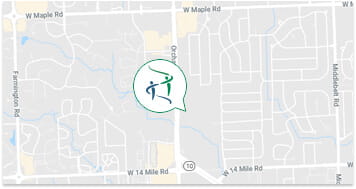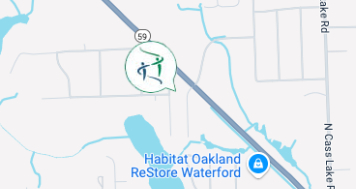
Postpartum Depression Support
Postpartum depression is often a result of a woman's hormone levels dramatically dropping after they have given birth.
Postpartum depression is often a result of a woman's hormone levels dramatically dropping after they have given birth. One in every seven women struggles with anxiety and depression during pregnancy and after childbirth. Typically, a mild form of this may last about 3-5 days after the baby is born. However, there are some cases where the depression lingers past this "baby blues" period. In this case, you may feel flawed and unable to love your baby.
This empty feeling can affect every aspect of your life, leaving you with emotions of inadequacy, as though you are unfit to be a mother.
Despite the negative feelings brought on by postpartum depression, you must remember that you are not responsible for the emotions you are having. Also, it is essential to note that this is a mental illness to address as soon as signs of postpartum depression are recognized.

Postpartum Depression Symptoms
- Extreme sadness or excessive crying
- Low energy
- Anxiety
- Irritability or anger
- Changes in eating or sleeping patterns
- Withdrawal or even isolation from friends and family
- Disconnection with your baby
- Intense emotions of shame, guilt, or worthlessness
- Harmful thoughts to yourself or your baby
These symptoms can continue up to a year after the baby is born. Proceeding without seeking help can harm your and your baby's well-being. At Viewpoint Psychology and Wellness, we offer effective treatment for postpartum depression through psychotherapy for perinatal anxiety and depression. If you cannot attend weekly sessions, we also provide teletherapy via video or voice chat to meet your needs at your convenience.
We understand that making the first call for help can be difficult. Women resist help for many reasons, such as hoping it will go away by itself, fearing no one will understand them, adverse reactions, and more. It's important to know that you aren't alone and that you aren't the only one with these feelings. Treatment is available and can help with any of these feelings or unwanted thoughts.
How to Deal with Postpartum Anxiety
Getting through postpartum depression (PPD) involves a combination of self-care strategies, professional support, and social support. Here are some steps to consider:
- Seek Professional Help: You don't have to go through this alone. The best thing you can do is reach out to a professional who is trained to help women go through postpartum depression. Viewpoint's mental health professionals, postpartum anxiety therapists, and postpartum counselors can provide an accurate diagnosis and recommend appropriate treatment options, such as therapy, medication, or support groups.
- Self-Care: Take time for self-care activities that promote relaxation and well-being, such as getting enough sleep, eating nutritious foods, exercising regularly, and practicing mindfulness or meditation. Doing your best to ensure you're physically and mentally healthy can help boost your moods and give you a sense of accomplishment during a period of depression.
- Social Support: Lean on friends and family members for emotional support and practical help with childcare and household tasks. Joining a support group for mothers experiencing PPD can also provide valuable peer support and understanding.
- Open Communication: Be open and honest with your partner, family, and friends about your feelings and struggles with PPD. Communicating your needs and seeking help when necessary can alleviate feelings of isolation and helplessness.
- Set Realistic Expectations: Be gentle with yourself and recognize that it's normal to have ups and downs during the postpartum period. Set realistic expectations for yourself and prioritize self-care and bonding with your baby.
- Stay Connected: Stay connected with your baby by engaging in skin-to-skin contact, breastfeeding, and cuddling. Building a strong bond with your baby can help promote feelings of connection and fulfillment.
- Monitor Symptoms: Keep track of your symptoms and seek help if they worsen or persist over time. PPD is a treatable condition, and early intervention can lead to better outcomes.
Remember that you're not alone, and there is support available to help you navigate through postpartum depression. Don't hesitate to seek help and support from Viewpoint Psychology & Wellness, loved ones, and support groups. A trained therapist for postpartum depression can help you through this difficult time.
PPD Therapist & PPD Counseling FAQs
Do You Have Questions About Insurance?
Your financial situation shouldn't hinder you from living a happier life. We accept various insurance plans and offer sliding scale rates to ensure you get the treatment you need.
Learn More About Payment OptionsGet Help from Trained PPD Therapists Today
Contact Viewpoint Psychology & Wellness today to get help from trained therapists specializing in postpartum depression (PPD). With support and self-care strategies, navigating PPD while caring for your baby is manageable. Our team provides the guidance and support you need to prioritize your mental health and well-being during this challenging time.
Contact us for compassionate care and effective treatment options tailored to your situation. Don't hesitate --- contact us today to begin your journey toward healing and recovery.



